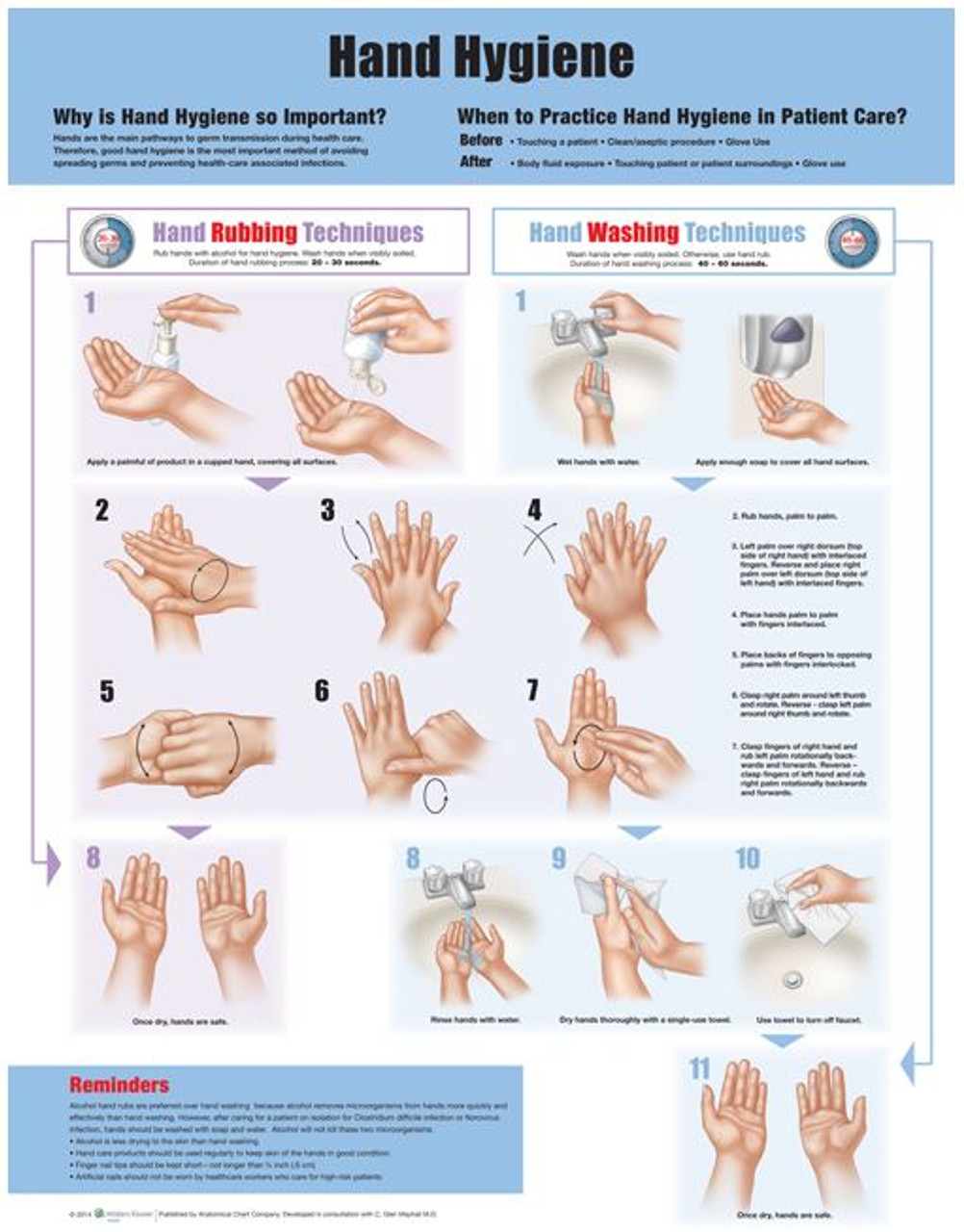
Healthy Hands: Essential Tips for Hygiene in Healthcare Settings
Maintaining proper hand hygiene is a fundamental aspect of healthcare practices, crucial for preventing the spread of infections and ensuring the well-being of both healthcare professionals and patients. Here are some essential tips for maintaining impeccable hand hygiene in healthcare settings.
Understanding the Importance of Hand Hygiene in Healthcare
In healthcare settings, hand hygiene is a cornerstone in infection prevention. Healthcare professionals come into contact with various pathogens daily, and proper hand hygiene is a primary defense against the transmission of infections from one patient to another or from the healthcare worker to the patient.
Frequent Handwashing with Soap and Water
The simplest yet most effective method of maintaining hand hygiene is regular handwashing with soap and water. This age-old practice helps eliminate a wide range of germs, viruses, and bacteria from the hands. Healthcare professionals should wash their hands thoroughly before and after patient contact, after handling bodily fluids, and after removing gloves.
Using Alcohol-Based Hand Sanitizers When Water Isn’t Available
In situations where access to soap and water is limited, alcohol-based hand sanitizers provide a convenient and effective alternative. These sanitizers can quickly and efficiently reduce the number of microbes on hands, making them an essential tool in healthcare settings for maintaining hand hygiene between patient interactions.
Proper Hand Rubbing Techniques
Simply applying hand sanitizer is not enough; the technique used matters. Healthcare professionals should follow recommended hand rubbing techniques, ensuring that all areas of the hands, including between the fingers and under the nails, are thoroughly covered. This systematic approach maximizes the effectiveness of hand sanitizers.
Nail Hygiene and Proper Nail Length
Long nails can harbor bacteria and make thorough hand hygiene challenging. Healthcare professionals should keep their nails short, clean, and free from nail polish. Additionally, they should avoid wearing artificial nails, as they can host harmful microorganisms that may compromise patient safety.
Jewelry and Hand Accessories Considerations
While jewelry and accessories can be stylish, they can also harbor germs. In healthcare settings, it’s crucial to minimize the wearing of rings, bracelets, and watches on the hands and wrists. These items can trap pathogens and interfere with thorough hand hygiene practices.
Glove Usage and Hand Hygiene
Wearing gloves is a common practice in healthcare, but it’s essential to remember that gloves are not a substitute for hand hygiene. Healthcare professionals should wash their hands before putting on gloves, immediately after removing them, and as needed during tasks to prevent cross-contamination.
Educational Programs for Healthcare Professionals
To reinforce the importance of hand hygiene, healthcare organizations should implement ongoing educational programs for their staff. These programs should cover proper handwashing techniques, the use of hand sanitizers, and the critical moments for hand hygiene in patient care.
Monitoring and Auditing Hand Hygiene Compliance
Healthcare facilities should regularly monitor and audit hand hygiene compliance among their staff. This involves observing hand hygiene practices, providing feedback, and implementing corrective measures when necessary. Monitoring helps maintain a culture of accountability and reinforces the significance of hand hygiene.
Promoting a Culture of Hand Hygiene in Healthcare Settings
Ultimately, creating a culture of hand hygiene is crucial in healthcare settings. This involves fostering an environment where proper hand hygiene is not just a routine but a shared value among all healthcare professionals. Leadership support, continuous education, and positive reinforcement contribute to building and sustaining this culture.
Conclusion: Upholding Health and Safety Through Hand Hygiene
In conclusion, maintaining proper hand hygiene in healthcare settings is vital for the well-being of both healthcare professionals and patients. By following these essential tips, from regular handwashing to monitoring compliance and promoting a culture of hygiene, healthcare facilities can uphold the highest standards of health and safety. To delve deeper into tips for proper hand hygiene in healthcare settings, visit Tips for proper hand hygiene in healthcare settings.



